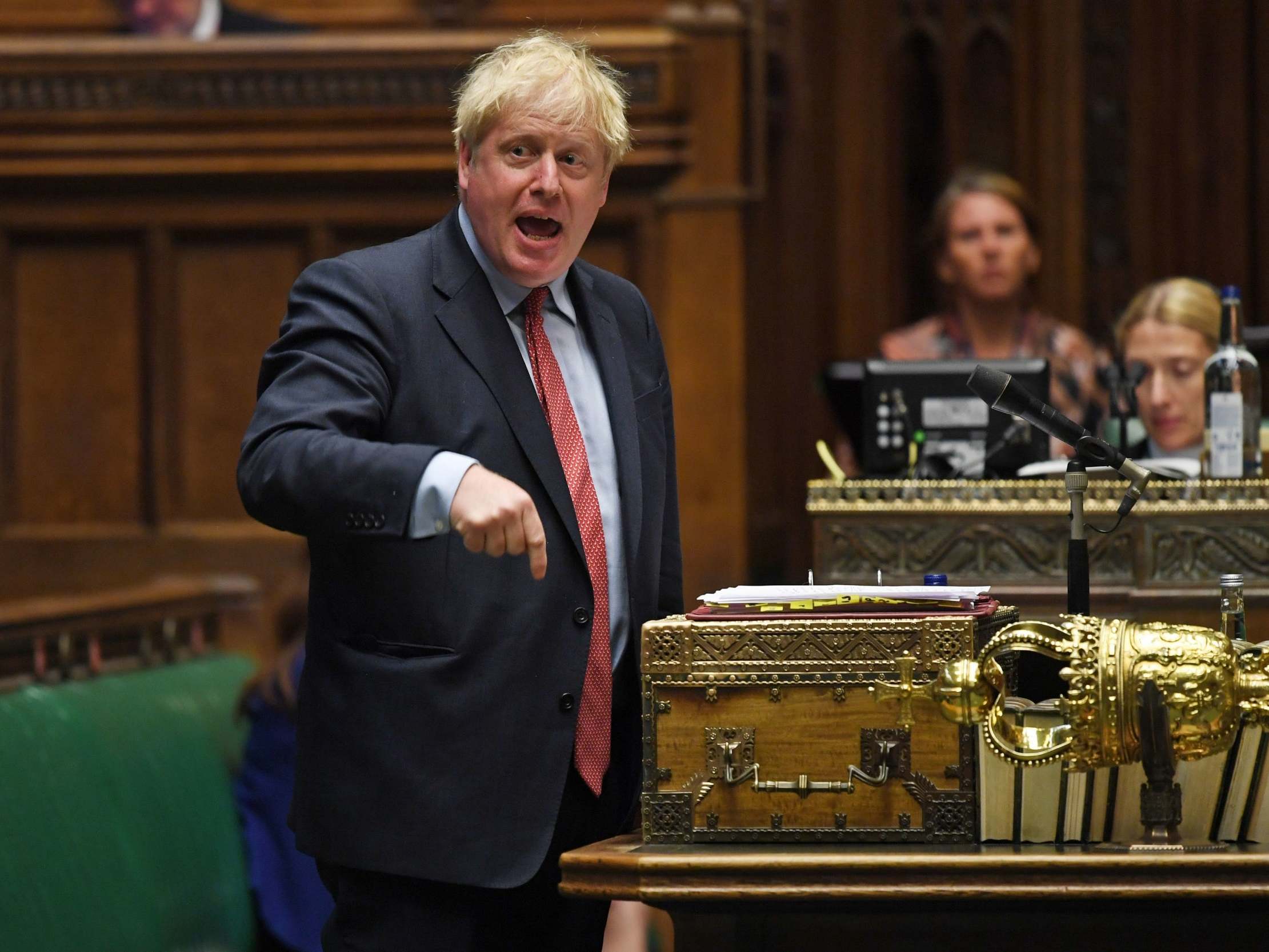The coup on the intelligence committee shows Boris Johnson has forfeited his party’s loyalty
The much-vaunted ‘Russia report’ is a distraction. The real significance of yesterday’s coup is that it illustrated the limits of Johnson’s power, explains John Rentoul


It was the stuff of a good spy thriller. Or possibly a comedy spy caper. An arrogant prime minister tried to fix the election of the chair of the committee overseeing the security services by installing a trusted former minister, only for his intelligence to fail him and a maverick Conservative MP to take over, with Labour support, instead.
The election of Julian Lewis as chair of the Intelligence and Security Committee yesterday in place of Boris Johnson’s candidate, Chris Grayling, the former justice secretary, was a perfectly executed ambush.
I understand that Kevan Jones, a Labour member of the committee who is also shadow minister for the armed forces, was the organising genius behind the operation. If so, he has lost none of the skills that he learned in the Northern Region of the GMB union, which was the training ground for many of the Labour Party’s most accomplished operators, including Nick Brown, the party’s chief whip.
Brown’s opposite number, Mark Spencer, the Conservative chief whip, responded to the coup with fury, expelling Lewis from the parliamentary party. That was bound to happen: chief whips can hardly allow an MP to collude with the opposition without consequences, or it would weaken the discipline they exert over others.
But it is too late now. Lewis, 68, was never a minister and no longer expected to become one. If he loses his seat at the next election – the effect of having the Tory whip removed is that he cannot be the official Tory candidate – he will at least have the chance of ending his career with four years as chair of one of the most important committees in parliament.
The significance of yesterday’s coup is that it reminds us again that a majority of 80 does not make Boris Johnson the all-powerful elected dictator that he seemed to be in the heady days after the general election. That majority is now 78, if Lewis, an independent MP, is counted with the opposition; the rest of the majority can melt away like a guerrilla army if a prime minister does not command widespread loyalty – and Johnson does not. His clearout of Theresa May’s ministers means that his backbenches are dangerous for him, and his favouritism towards Dominic Cummings has tested the support of even those MPs who owe their “red wall” seats to Johnson personally. The U-turn on Huawei showed that his nominal majority counted for nothing when Tory economic nationalists could make common cause with the Labour Party.
The same arithmetic applied in simplified form to the Intelligence and Security Committee (ISC). It had five Conservative members and four from the opposition parties (three Labour and one Scottish Nationalist), so it took only Lewis’s defection to give him a five-to-four majority in the election of the chair.
That produces, with satisfying irony, the first genuinely independent chair of the ISC since it was set up by John Major in 1994, when it was presided over by former defence secretary Tom King. Major responded to pressure to make the security services more democratically accountable by creating a committee on which the government party had a majority, and whose chair was in effect appointed by the prime minister.
This set-up, although an improvement on the secrecy that went before, was criticised from the start for giving the government too much control. Now, thanks to Lewis and Jones, that control has been broken. Not that this is a triumph for those who regard the security services with instinctive suspicion. Lewis is a long-time national security hawk who cut his teeth as a campaigner against the Campaign for Nuclear Disarmament in the 1980s, and the Labour members of the ISC, including Jones, are very much from what might be called the patriotic wing of the party.
And Lewis’s victory could still prove temporary. Johnson and his chief whip may try to use the Tory majority in the Commons to remove him from the committee, but that would be a risk, even with a majority of 78.
Still, the coup does in the meantime guarantee that the committee’s report into Russian interference in the EU referendum will finally be published (although it was likely to be published anyway, even if Grayling had taken the chair). The report was completed under the ISC’s previous chair, Dominic Grieve, but publication has been delayed by the election and the failure of the government to allow the committee to be reconstituted since.
Those who assume the report is damning are likely to be disappointed, however. It may be embarrassing for the Conservatives if it draws attention to some of the party’s Russian donors, but it is unlikely to suggest that the result of the 2016 referendum was influenced by the Russian state.
The much-vaunted “Russia report” is a distraction. The real significance of yesterday’s coup is that it illustrated the limits of Johnson’s power.
Join our commenting forum
Join thought-provoking conversations, follow other Independent readers and see their replies
Comments